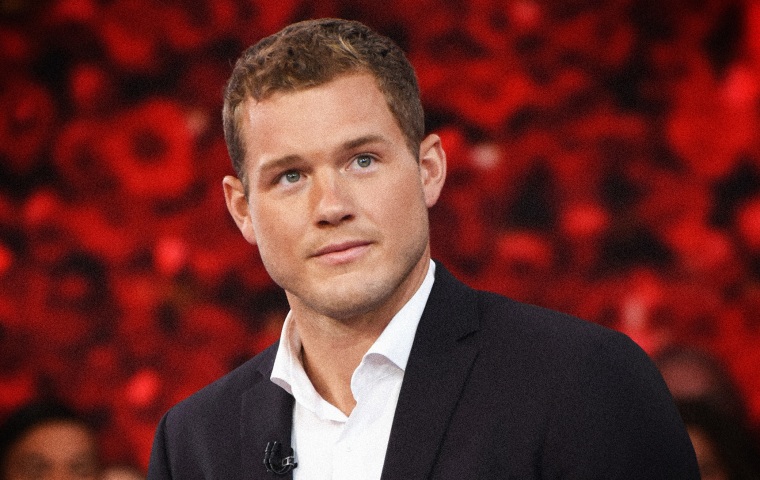In March 2020, former “Bachelor” star Colton Underwood sat down with "Entertainment Tonight" to discuss his new memoir. In an interview with host Lauren Zima, Underwood addressed how his confusion about his sexuality had impacted his choice to remain a virgin into adulthood.
The response to these revelations has been predictably messy and frustrating to wade through.
“There was questions there,” he admitted, saying that when he was young he had Googled, “Am I gay?”
But going on “The Bachelorette,” “Bachelor in Paradise” and eventually becoming the titular lead of “The Bachelor” itself — and ending up with luminous blonde Cassie Randolph — had settled any questions he may have had about his sexuality once and for all.
"What did going on the shows teach you about your sexuality?" Zima asked.
"Obviously that I'm straight and I'm very, very attracted to Cassie and women," he said, laughing wryly.
A year and some change later, that exchange feels significantly weightier — and significantly darker.
It’s impossible to watch that interview and not note two things. First, last September, Randolph was granted a temporary restraining order against Underwood for alleged harassment and stalking. Second, on Wednesday, Underwood publicly acknowledged in an interview with Robin Roberts on "Good Morning America" that he is gay.
“I’ve ran from myself for a long time. I’ve hated myself for a long time. I’m gay and I came to terms with that earlier this year," he told Roberts.
The response to these revelations has been predictably messy and frustrating to wade through.
Online discourse has largely split into two camps: Colton Underwood is Good or Colton Underwood is Bad.
The truth is, of course, somewhere in between. Underwood is a human — a human who allegedly behaved in inexcusable ways and terrorized his ex-girlfriend and who has been deeply harmed by oppressive prescriptions about what it means to be a man. To ignore either of these realities is a mistake. Accepting Underwood’s full humanity and expressing empathy for his struggle should not require the erasure of Randolph’s humanity or the pain Underwood caused her.
Although the "GMA" segment didn’t dive into Underwood’s treatment of Randolph after their breakup beyond a mention of the restraining order, the former Bachelor did apologize to Randolph directly.
"I'm sorry from the bottom of my heart. I'm sorry for any pain and emotional stress I caused,” he said. “I wish that I would've been courageous enough to fix myself before I broke anybody else.”
When queerness has come up on the show, it’s often been used as a punchline
But more interesting than parsing whether Underwood is good or bad is looking at the reality franchise that made him a figure of interest in the first place. At one point during his interview with Roberts, Underwood admitted he had continually put himself “in really bad situations on purpose” in order to force himself to be straight and even said that on the morning he was named “The Bachelor,” he prayed and thanked God “for making me straight.”
That might seem like a leap. But what it speaks to is the show’s core values. “The Bachelor” prizes heterosexual marital partnership over all other relationships and purports to pluck the most eligible, desirable men and women — men and women looking for heterosexual marital love — from obscurity during the casting process.
When queerness has come up on the show, it’s often been used as a punchline, like when a 2015 promo for Kaitlyn Bristowe’s season of “The Bachelorette” branded the burgeoning platonic friendship between two male contestants as the “Brokeback Bachelor.” In recent years, the show has featured at least two bisexual women on the show. One, Jaimi King, was largely tokenized, while the other, Demi Burnett, had to have an outside romantic prospect flown into Paradise for a queer love story to even be showcased at all.
All this is to say “The Bachelor” franchise is not exactly a rainbow coalition.
It’s then somewhat unsurprising that Underwood might have seen being chosen by “The Bachelor” to cosplay the epitome of straight male desirability as akin to being given a chance to live as a straight man. The show is inextricably linked to the enforcement of heterosexuality and the traditional gender roles that Underwood seemingly yearned for growing up in the Catholic Church and in the uber-macho world of professional football.
There are still plenty of reasons to be wary and critical of Underwood. Should he really be jumping immediately into the public sphere as a gay icon figurehead — and profiting off of that role, as he will reportedly be doing in a new Netflix docuseries? (According to TMZ, the show will follow Underwood as he navigates coming out and will feature prominent members of the LGBTQ community, including U.S. Olympian Gus Kenworthy.) My inclination is to say probably not.
He could question the homophobia and misogyny that still find their way into so many locker rooms.
But Underwood does have a platform, one that could make a difference if he uses it wisely.
He could question the stringent and hateful, harmful moral judgments of the religious institutions he was brought up in. He could question the prevailing and deeply harmful cultural conception of “traditional” masculinity — a brand of masculinity that is often presented in opposition to queerness.
He could question the homophobia and misogyny that still find their way into so many locker rooms. He could question the way men are raised to view women as objects and tools of their own personal development.
He could question why cis, white, gay men are still so often at the forefront of queer representation in popular culture.
He could even question the franchise that is so wedded to heterosexuality in the public imagination that being cast as its lead made him feel like he had found a shortcut to living as a straight man. The proverbial ball is in Underwood’s court.

